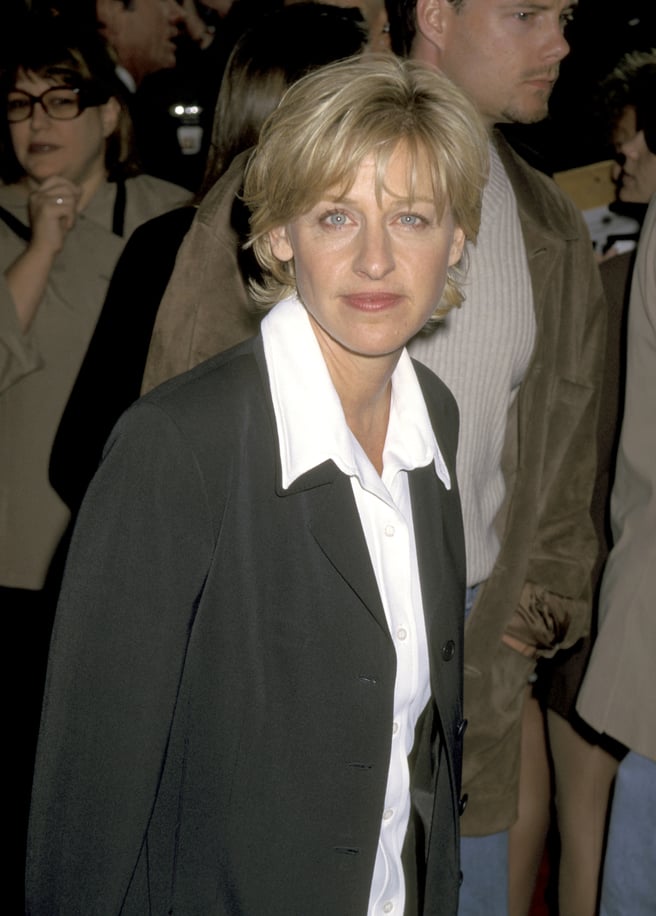_1597133903512.jpg)
Living in a time when gay people announce they’re getting married or having babies and no one bats an eyelid, it might be hard to appreciate what a big deal it was when Ellen DeGeneres came out as gay in 1997. But it was a big deal. A very, very big deal.
DeGeneres made a name for herself as a stand-up comedian in the 1980s. Back then, the people close to her were aware of her sexuality. She hung out at a local lesbian bar in New Orleans, and when she moved to San Francisco in 1984, she told her manager Bob Fisher she was gay.
"She was very relieved it wasn't an issue," he told Newsweek. "I already knew Ellen was gay. It was sort of taken for granted."
Watch: Ellen's coming out interview on Oprah. Post continues below.
Like a lot of the biggest stand-up comedy stars of the 1990s, DeGeneres was given her own sitcom, Ellen. She played a character called Ellen Morgan, and her show was referred to as the "female Seinfeld". But Ellen was a bit lost when it came to the main character’s relationships. Ellen Morgan never found a man she really connected with. Network executives suggested that maybe she should get a puppy.
Although DeGeneres' staff at the sitcom knew she was gay, she didn’t really want to go public about it. As she later told Oprah Winfrey, she didn’t feel like it was anyone’s business who she was dating. Then she changed her mind.


Top Comments
Ellen isn't being "cancelled", she is being held accountable for her actions, and the actions of people who worked for her and the toxic workplace culture she allowed to fester.